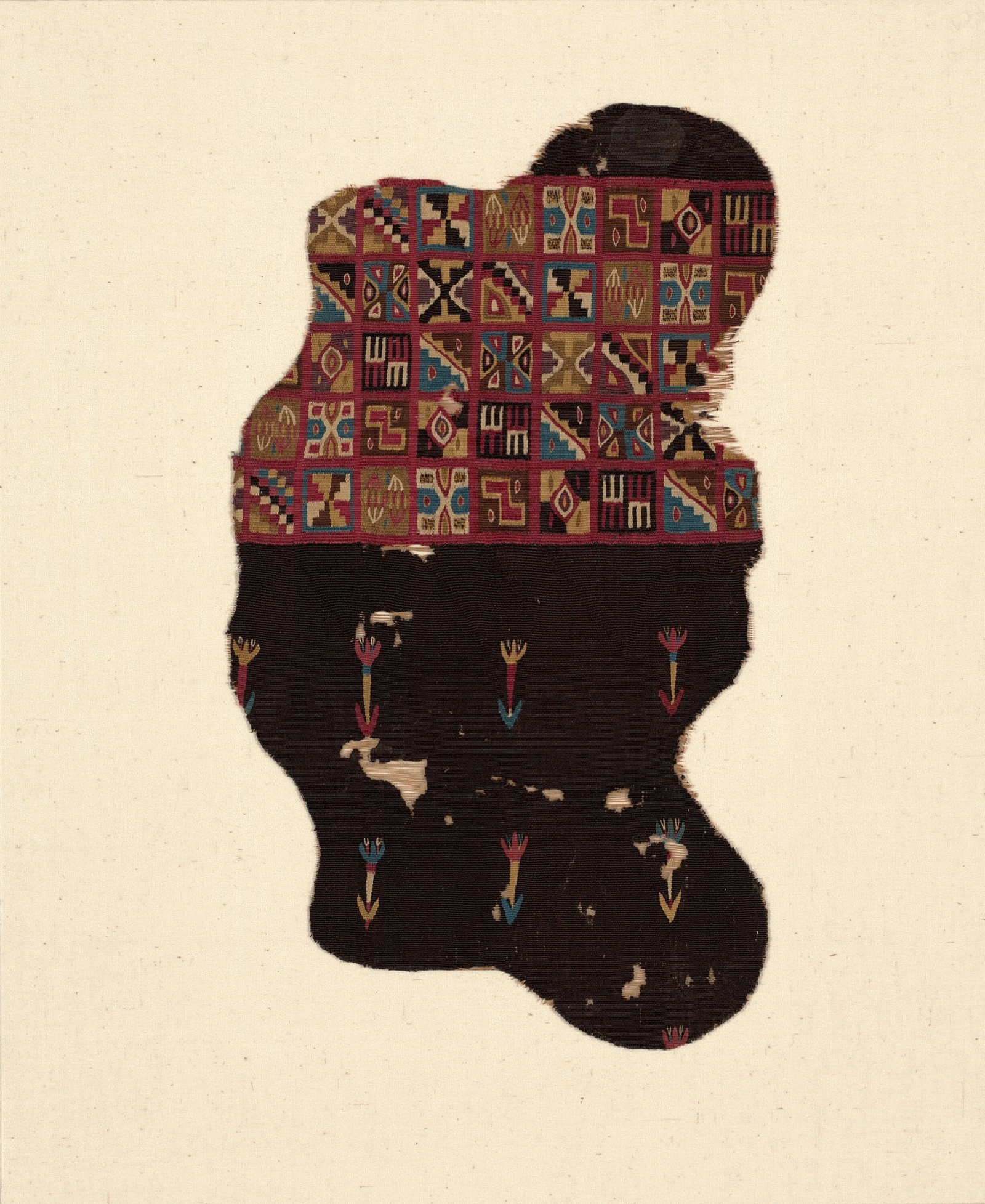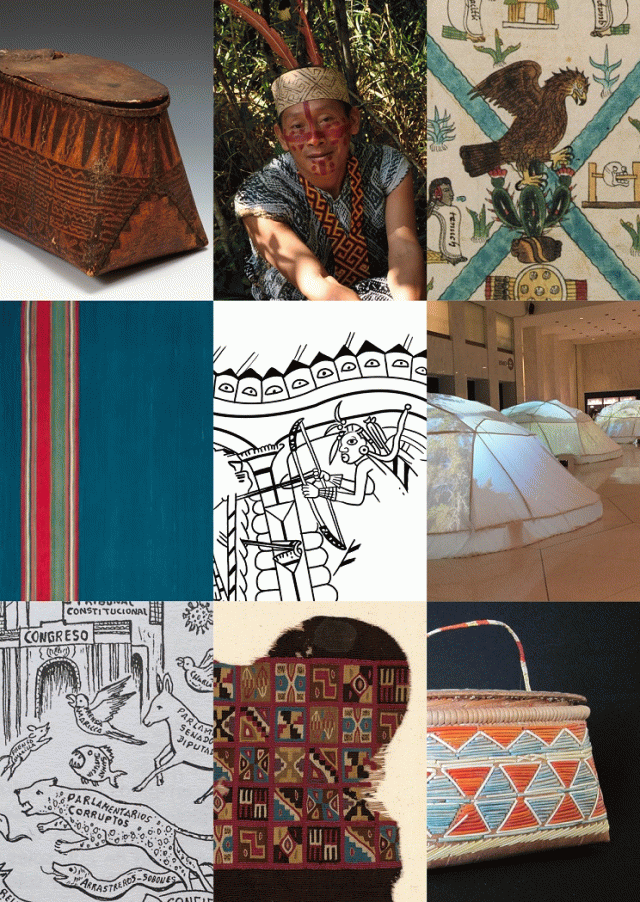Vortragsreihe
Andrew Hamilton:
Fragments of Empire: The Afterlife of a Colonial Inca Tunic
Within the framework of the KHI Amerindian Lecture Series

Fragment of an Inca-Colonial tunic 1924.460, The Art Institute of Chicago
The ancient Andes have preserved an abundance of textile fragments that museums and scholars often overlook in favor of large, pristine, show-stopping pieces. But it is often when things deteriorate, are cut up, or reworked, and are still treasured that we can most appreciate not only their original value, but also the new meanings and uses they accrued over time. Two small, unusual fragments of cloth cut from a colonial-era Inca tunic in the collection of the Art Institute of Chicago help us understand the significance of earlier, imperial Inca tunics, as well as the transformations of their designs—and Indigenous identities—under colonial rule.
Andrew James Hamilton is associate curator of Arts of the Americas at the Art Institute of Chicago. His work explores the art and architecture of the ancient and colonial Americas, with particular interests in the Andes and textiles, as well as contemporary Native American art. Hamilton is deeply invested in analyzing objects, how they were made, used, and eventually disused, in order to understand why they were created and what cultural meanings they bore. His first book, Scale & the Incas, which he also illustrated, was published by Princeton University Press in 2018. It considers the role of scale in Inca material culture, built environments, and worldviews. He is currently completing his second book, The Emperor’s New Clothes: The Biography of a Royal Inca Tunic, which examines the all-tocapu tunic in the collection of Dumbarton Oaks in Washington, DC.
Hamilton is also a lecturer in the Department of Art History at the University of Chicago. He previously served as lecturer in the Department of Art and Archaeology at Princeton University and was a member of the Princeton Society of Fellows. He received his BA in the history of art from Yale University and his MA and PhD in history of art and architecture from Harvard University. His work has been supported by the American Council of Learned Societies, the Getty Research Institute, the Fondation Fyssen, and the Laboratoire d’Anthropologie Sociale at the Collège de France.
The KHI Amerindian Lecture Series 2021 is conceived as a forum to reflect on Indigenous arts/visual cultures and aesthetic practices created on the American continent, past and present. It is organized by Sanja Savkić Šebek (KHI in Florenz – Max-Planck-Institut & Humboldt-Universität zu Berlin) & Bat-ami Artzi (Dumbarton Oaks) within the framework of the Department Gerhard Wolf & the 4A Laboratory: Art Histories, Archaeologies, Anthropologies, Aesthetics.
02. Dezember 2021, 17:30 Uhr
The event takes place online.
To participate please register in advance via Zoom:
https://zoom.us/meeting/register/tJwpdemtrDkpGNdTKhRH_EqeiKJrTXoV971Q
After registering, you will receive a confirmation email containing information about joining the meeting.
Hinweis
Diese Veranstaltung wird durch Fotografien und/oder Videoaufnahmen dokumentiert. Falls es nicht Ihre Zustimmung findet, dass das Kunsthistorische Institut in Florenz Aufnahmen, auf denen Sie erkennbar abgebildet sein könnten, für die Veranstaltungsdokumentation und Öffentlichkeitsarbeit (z.B. Social Media) verwendet, bitten wir um eine entsprechende Rückmeldung.



